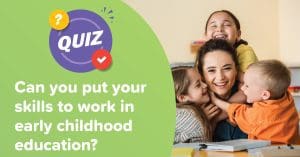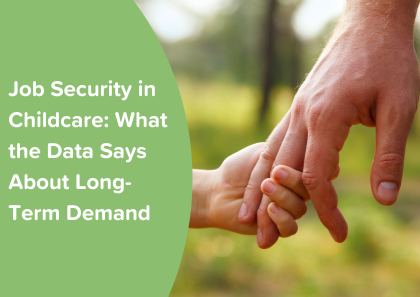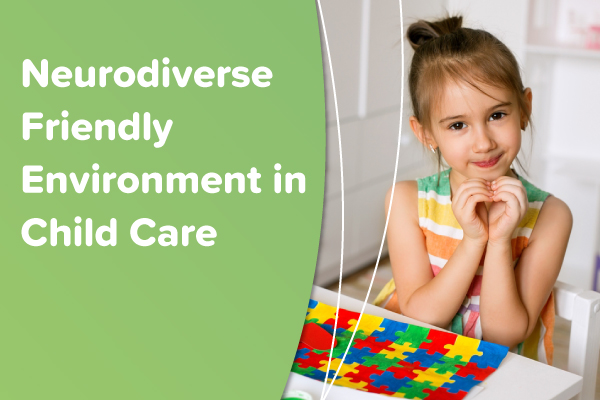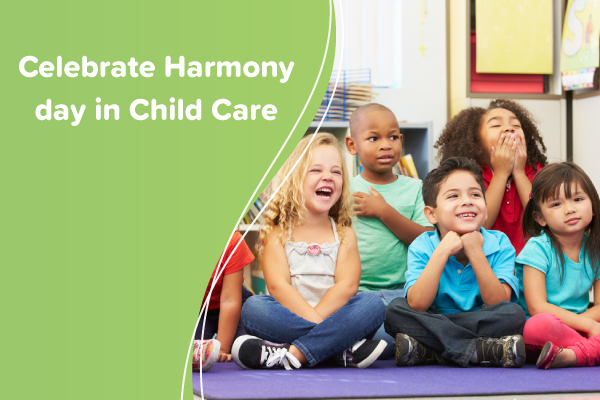Are you interested in a career in early childhood education but aren’t sure if it’s the right path for you?

Changing from one career to another might seem a little daunting, but if you’re considering switching to early childhood education and care, you might be surprised by how many skills are transferable.
If you’ve worked in people-facing roles, chances are you’ve already had to learn and implement some of the skills which help you care for and relate to young children. While early childhood education and care is quite different to working in other sectors, there is a lot of crossover in terms of the skills you might be using.
Some skills you might already possess and want to focus on include:
- Communication
- Adaptability
- Teamwork
- Patience
- Problem-solving
- Organisation
- Creativity
- Cultural awareness
This quick quiz will help you determine how your interests, skills, and values align with a career in early childhood education.
Take the quiz: Putting your skills to work in early childhood education
By answering these seven questions about your adaptive skills, interests, preferred responsibilities, and values, we can help you understand just how much you already have to offer by pursuing a career in early childhood education.
So, let’s get started and discover how an early childhood education career will match your interests and skillset!

Which of the following best describes your most prominent adaptive skills?
a. I am patient, empathetic, and a good listener.
b. I am organised, detail-oriented, and responsible.
c. I am creative, spontaneous, and adaptable.
What kind of tasks/responsibilities do you enjoy doing?
a. Helping others, providing emotional support, and teaching new things.
b. Planning, organising, and managing tasks efficiently.
c. Designing, creating, and implementing new ideas.

Which of the following best describes your interest in working with children?
a. I love caring for others, playing with children, and helping them learn new things.
b. I enjoy teaching, mentoring, and guiding children in their development.
c. I find working with children to be challenging, but very rewarding.
Which of the following best describes your values?
a. I value kindness, compassion, and empathy.
b. I value education, learning, and personal growth.
c. I value creativity, innovation, and problem-solving.

Which of the following skills do you possess that you think would be beneficial for a career in early childhood education?
a. Excellent communication and interpersonal skills.
b. Strong leadership and problem-solving skills.
c. Imagination and adaptability.
Which of the following tasks/responsibilities do you think would be the most rewarding in a career in early childhood education?
a. Helping children learn new skills and concepts.
b. Working with parents to ensure a child’s wellbeing and development.
c. Creating and implementing engaging activities and lesson plans.
Which of the following best describes your approach to managing behaviour in a classroom setting?
a. I believe in using positive reinforcement and modelling good behaviour.
b. I believe in setting clear boundaries and communicating them effectively when necessary.
c. I believe in a collaborative approach that involves working with the child in setting their own goals and reflecting on what their behaviour should be.

Now, let’s tally up your answers:
If you answered mostly A’s:
Congratulations! You possess the necessary skills and traits to excel in early childhood education. Your patience, empathy, and love for caring for others make you a great fit for working with young children. Your excellent communication and interpersonal skills combined with the ability to create a nurturing and supportive environment for young children will help them grow and learn.
If you answered mostly B’s:
Your strong leadership and problem-solving skills will make you an effective early childhood educator. Putting your organisational skills, attention to detail, and dedication to education and personal growth to work will help you excel in this field. You have the ability to set clear boundaries, while also working collaboratively with parents and colleagues to ensure a child’s wellbeing and development.
If you answered mostly C’s:
You are a creative problem-solver who would excel in the dynamic and challenging environment of early childhood education. Your ability to think outside the box, adapt to new situations, and find innovative solutions will make you a valuable asset to any early childhood education team. You will create engaging and innovative lesson plans and activities that will keep children excited and motivated to learn.
How did you go? Is now the time for you to start a career in early childhood education? This checklist can help you decide. And reach out to our team to chat about how to commence your journey into this rewarding, meaningful sector!



